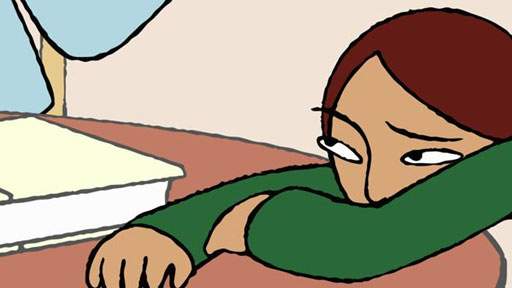As I sit facing my PC, my henaed fingers are striking on the key board making my pink coloured glass bangles jingle sweetly. My pink chiffon saree with floral embroidery, slides off my left arm, as I loosen the strap of my high heeled sandals to concentrate on this post of mine. It is Karva Chauth, the festival hugely glamorised and popularized by Bollywood. So I am in my traditional best, sharing the customs and rituals associated with it.
I don't hesitate to say that I am, well ehmm (!!), a modern woman who can handle stilletoes and cotton sarees with equal elan. I, like many of the women internet users here, would read the historial background of this immensly popular fast kept for the well being of one's husband on internet, in English and will be equally attentive while the neighbourhood auntiji will narrate the Vrat Katha during the pooja in the evening, when all the married women of the locality dressed up in bright colours and jewellery would sit in a circle and sing a traditional song rotating the Thalis (plates) containing sweets and fruits for their mother-in-law (MIL).
Also, I don't mind saying that even this occasion will not go without my scurtinizing it nice and proper! I am traditional enough to dress up and fast the whole day for the long life of my husband but I am very much a woman of this age who would mould the rituals as per her liking and convenience (without affecting the very spirit of the occasion). (Like I skipped the parantha and had bread in sergi)
And above all, I am non-conformist enough to question the very faith, the very mythological tale behind the ritual of this fasting. And later in the post, I want to question why does the Indian husband not fast for his wife?
But, first let me give you a bit of the background.
The fast of Karva Chauth is observed by married women and sometimes by unmarried girls for praying for getting a good groom!
States of India observing this tradition are Delhi, UP, Rajasthan, Gujrat, Himachal Pradesh etc. Although in different states of India, this kind of fasting exists with various names like - Teej, Vat Savitri Puja, Mahashivaratri, Gangaur Pooja, Varalakshmi Vratham etc.
The rituals of Karva Chauth - Women fast from dawn to dusk without food or water. Before sunrise, women bathe and dress up (do shringar) and have food, sweets, fruits given by the mother-in-law (it's called Sergi). In the evening, it's community pooja for many people, and many perform the pooja at home. But the community ritual is more prominent where, women sit in a circle and rotate the thalis seven times, singing the vrat song. One elderly woman would sit in the middle of the circle, with some pooja material and a doll made from dough, and will narrate the story to the women. Afterwards, after seeing the moon and one's husband (Pati Parmeshwar!), the women would break their fast. (And, this I need not elaborate upon, as this has been shown in the movies so many times! It's so mushy mushy and romantic na?!)
The idiosyncracies - Mehandi (Hena), glass bangles, jewellery, and bright coloured sarees are a kind of a must for this festival. Women should not touch a knife or scissors or needles throughout the day.
How it could have started? Karva Chauth could have started when men would go out fight in battles or work in different place for long and women would worry and pray for their well being.
The Story behind the fasting is a little unclear. I have heard different narrations of the tale. So, things are not so fixed that way. But only thing is common that it was the two mistakes of the woman Veeravati which makes her loose her husband twice - once to death and the second time to another woman, the maid servant! So, the story is a way to teach women a moral lesson of virtue and tolerance.
The story in brief, this girl Veeravati (veera) goes to her parent's place on her first Karva Chauth (so, if she was also observing this fast, then this tale can't be the origin of the ritual). Her loving brothers light some fire and show the glow in the sky, saying that it was moon, so that she could break the fast and eat something. They did it out of affection for their younger sister. But, because Veeravati breaks the fast, her husband dies. (So, the fear factor put in the fast)
He not just dies, but has hundreds of needs pierced in his body (was he some Bhishma Pitamah?!) The poor girl prays to Shiva and Parvati and goes on taking those needles till it is next Karva Chauth (she kept a corpse at home for one year). But as the last needle is left on her husband's body (who is a king too), she goes to buy Karva (a earthern little pot) for her fast. And the clever (or was she helping) maid pulls out the last needle.
The king regains conciousness and takes the maid as his wife (he had some memory loss too it seems!). The poor Veeravati waits and fasts, with a lot of tolerance.
Once, when the king was going out, he asks his wife and maid, what do they want? The wife (actually the maid) asks for jewellery and the maid (actually the wife) asks for a doll. Veeravati keeps saying this story of changed roles to the doll (Rani became Goli, Goli became Rani, goli probably was the name of the maid). When the curious king asks about it, Veera tells the truth. Now the king realises his mistake (Oh,now!) and accepts Veera as her queen.
Religion and Fear - If we really see that religion or rather religious practices have been as such which have put physiologial and emotional pressure on women to follow them. Somewhere women have been given a lower berth. Women, wanting a good husband would fast, wanting the welfare of husband or children would fast, chant mantras, pray, visit temples. Women somewhere have been idolized as someone capable of these divine practices or sacrifices, while men kept themselves away from him humdrum. I have heard about men performing Yagnas or poojas only as a profession or familial occupation ie., priests or pujaris.
Fasting in Today's context -
In the current context, when rituals, customs, even true spirits of festivals have got subdued or diminished, and when only some symbolic gestures are left, which our generation doesn't even understand or does it just for fun. How come then, such a rigorous fasting ritual has sustained the test of time, this surprises me! In fact, it does not. Our movies have definitely added a certain glamour to it and we should not forget that there is a number of retailing and service sector associated with women, which benefit from this custom. These could have been the factors for making this a popular ritual.
Karva Cchauth is the time for shopping for self and mother-in-law. Gifts include heavy sarees, gold and diamond jewellery. Then women want their matching sandals, jewellery, glass bangles, bindis, cosmetics, hair accessories and flowers to dress up. Also, this is a booming time for beauty parlours as they offer special "Karva Chauth packages"! Skin clinics for hair reduction, skin upliftment, wrinkle corrector shots, specialised facials are the service areas which florish during this festive time.
And if you are not aware of the price tag, let me tell you that the humble Mehandi on both hands costs Rs 800/- on a day before KC, in prominent markets.
Physiological effect - Imagine, a woman on fast cooks for the whole family, feeds them but remains hungry herself. But, the husband gets some spiritual high of being born a male! When women are working as hard as the men are, then does this ancient ritual, dating back to the time when women were not working outside, needs a relook and some updation with changing times?
Is there something religious left in it? I doubt. sometimes love :) but mostly expectation from family or fear of some bad consequence makes women stick to the fasting, only to be left comparing and counting the gold bangles worn by other women are wearing during the pooja! For the wealthy, it's a show off time also.
The Metrosexual Man still likes to be treated as a semi God - The aarti utarna and touching feet of husband gesture makes me feel disgusted. How can a man be some kind of God? Or was it something to do with respect? Men being much elder than their wives? Do women really need to treat their men like Parmeshwar, even now?? It defies logic! I feel disgusted by such acts. But women do it, take the ashirwad (blessings) of their husbands, standing on the roofs, roadsides, parks, surrounded by people! And husband also obliges! hufffff!
I thought love needed reciprocation ?! If it's about love, why there is no reciprocation? And, by the way, buying jewellery is no reciprocation. Does it belittle a man's social standing if he admits that he too fasts for his wife?? Does he make himself a butt of ridicule in front of his mother first and then his family and friends by showing his love for his wife? Why do Indian men don't fast for their wives? Is it not the reflection of a society where they say that it's difficult for a woman to live without a man - be it father, or brother or husband or son? And a man remarries within a few months of his wife's death?
I know what I have written will elicit anger from the men readers or even some women. They may feel that if this is what this blogger woman feels, then why does she not leave the fasting ritual? Why she has to follow it? I would say that you think about it with a complete joint family society set up of our's before shooting back.
But I would definitely like to know your views about this. Tell me how do you feel about it? Especially the feet touching thingy?! And your views about why men don't fast?
RESTLESS

 It seems talking about Common Wealth Games is so passe now! Nevertheless, I want to share some scanned images of handouts etc depicting the cultural fiesta the city was enjoying during the Common Wealth Games (phew! now I got time!). In fact, we the Dilliwalas were visible all over the places from music concerts to exhibitions and not to forget the food festival. No trace of tourists of other countries!
It seems talking about Common Wealth Games is so passe now! Nevertheless, I want to share some scanned images of handouts etc depicting the cultural fiesta the city was enjoying during the Common Wealth Games (phew! now I got time!). In fact, we the Dilliwalas were visible all over the places from music concerts to exhibitions and not to forget the food festival. No trace of tourists of other countries!


 You could enjoy the Ho-Ho ride (Hop on Hop off ride), and visit the historical places of Delhi. The known and unknown historial monuments were lit up, the museums, which are many in Delhi (I love them) were also showcasing the rich heritage of the country. Also, the Nehru Planetarium, which was closed for quite some time for renovation was opened for public sometime on beginning of October. It's a must watch place, I will catch it up soon with my kids.
You could enjoy the Ho-Ho ride (Hop on Hop off ride), and visit the historical places of Delhi. The known and unknown historial monuments were lit up, the museums, which are many in Delhi (I love them) were also showcasing the rich heritage of the country. Also, the Nehru Planetarium, which was closed for quite some time for renovation was opened for public sometime on beginning of October. It's a must watch place, I will catch it up soon with my kids.









































